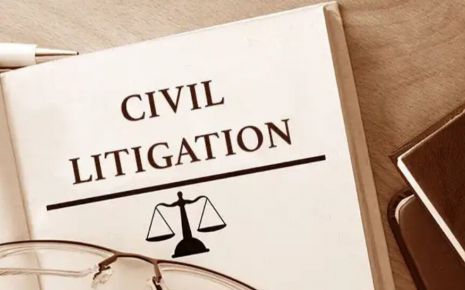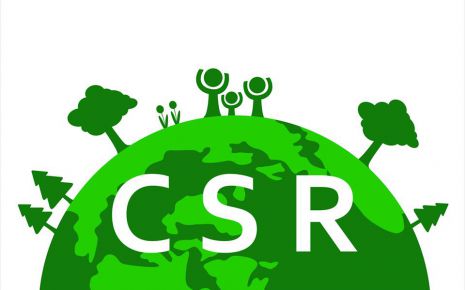Role Of Women In Politics
As more and more women began crossing the man made barriers, the world began to witness the
rise of women like a phoenix. Women have been fighting for their political rights ever since but
in the Indian context it is heartening to know that Indian women were among the earliest to get
their political rights. They were also the first among the foremost to take part in politics even in
pre independence times.
The rate of political participation has been on rise ever since. Today, women are as much involved in politics as men from the National cabinets to local governments. The political participation of women has brought many significant changes and advancements in gender parity politics.
But still it is a shame for society at large when we see that countries like Kuwait, Qatar and Bahrain granted women the Right to Vote after the second half of 20th century. There are many hindrances which reduce the level of women putting themselves politically forward such as unprogressive mindset, social expectations and stereotyped opinions. All these loopholes need to be dealt with collective efforts of society, authorities and women to realize the goal of political empowerment.
Introduction
With the passage of time there has been a growing recognition of the untapped capacity and talents of women when it comes to the public life of politics. Political status of women refers to the degree of equality and freedom enjoyed by them in shaping, sharing of power and in the value given by society to their role in total development and polity. There is a bidirectional relationship between political development and women's empowerment, defined as improving the ability of women to access the rights, opportunities, education and political participation.
Women belong in all the places where decisions are being made and they have successfully asserted their position in this respect. Women have displayed a remarkable performance of their political strengths be it New Zealand's largely female cabinet garnering top position in gender 2 parity politics or a celebrating distinction to become a female UNO Secretary M/s Vijay Laxmi Pandit.
Review of Literature:
Research Methodology
The paper is basically descriptive in nature. It also focuses on numerical data from secondary sources according to the need of the study. An attempt has been taken to analyze the political empowerment of women globally under the heads of its obstacles and suggestions.
Role of women in conventional politics
But their political status quo has not been so always. Earlier, the societal nature was patriarchal which pushed women into an abyss of insignificance. Resulting, conventional politics largely reflected male concerns and women were notably absent in it. The history of women's participation in politics does not start from an exact date rather it was a cumulative process along the way. Broadly, it traces back to recognition of women's suffrage rights throughout the 18th and 19th centuries across different nations and in a few instances, 3 sometimes even predates it. The recognition of suffrage rights paved way for other political rights of women as well such as the Right to get elected, Right to hold public offices which led to political advancement of women. Therefore, the process has been gradual and slow.
Political welfare measures
Now, a new arena of women in politics has emerged gradually all over the world. Welfare policies have been constructed which have reinforced women's traditional and stereotyped positions as wives and mothers. Such steps were mainly in the form of recognition of women's political rights and then later in the form of gender quotas, political training programs etc. In the Indian context, one of such welfare measures has been inclusion of Article 15(3) under Right to Equality in the Constitution by the Supreme Court in Government of Andhra Pradesh vs. P.B. Vijayakumar to protect the political status of our womenfolk and for removal of imbalances in the participation of men and women in political life. Also, there is a provision of reservation under Article 343(d) of not less than one-third of total seats for women in direct elections to local bodies.
Further, the approval of the Convention on the Political Rights of Women by the United Nations General Assembly which later was incorporated into the Convention on the Elimination of All Forms of Discrimination against Women was a major and a wide reaching step. The advancement in women's political position has only been possible through political changes.
To quote Tabby Biddle:
"As the prevailing voices in public spotlight are predominantly men, stepping into the spotlight with the truth of who you are as a woman is political change."
Women's political participation & Democracy:
Experts agree that much depends on women being involved on an equal footing in political leadership as well as corporate governance. J.S Mill observes that, Progress of a country can be judged by status of its women in all areas because of their significant place in society.
The United Nations (UN) uses two benchmarks for progress:
Effect on decision making processes
When women participate in politics its effects ripple out across all dimensions. There are established and growing evidences that women's leadership in political decision making processes improves them. For e.g.= Research on Panchayats{local councils} in India discovered that the number of drinking water projects in areas with women led councils was 62% higher than in those with men led councils.
Research indicates that whether a legislator is male or female has a distinct impact on their policy priorities. There is also strong evidence that as more women are elected to office, there is a corollary increase in policy making that emphasizes quality of life and reflects the priorities of families, women, ethnic and racial minorities. Hence, women's participation has undoubtedly brought a different perspective focusing attention on a broader set of issues while mainstreaming genders in all policy areas.
Data findings
In a time of sweeping change and great challenges women's participation in politics factually accounts to 24.3% globally as suggested by a report of the Inter-Parliamentary Union. Over the last two decades, rate of women's representation in National Parliaments has also incrementally increased. And till today, seventy countries have had some sort of female leadership which includes 6 of the 10 most populous countries in the world. Particularly, with three women Prime Ministers, four women Presidents and two Queens women's participation in political leadership has been remarkable in the EU member states.
Apart from that there has been a dramatic increase in women's participation in Sub Saharan Africa and Arab state regions. Gains in women's numerical representation over the past two decades marks important victories on a path to greater gender equality in politics by bringing different life experiences and perspectives into political decision making processes.
Hindrances
A mere increase in number of women occupied offices hasn't necessarily translated into more power rather it distorts the perception of progress. Women still at every socio political level find themselves underrepresented. A number of factors appear to contribute to this under representation: women are seldom leaders of major political parties which are instrumental in forming future political leaders, gender norms, expectations. Such factors drastically reduce the pool of women putting themselves politically forward. Hilary Clinton, one of the finest examples 5 of women in power play shares that, Women are the world's most underused resources especially when it comes to politics.
Only 14 out of almost 200 countries have achieved 50% or more female participation in their cabinets. Only 18% of the appointed ministers are women and they are usually assigned portfolios related to environment, natural resources, energy followed by social sectors. This means that women are still largely excluded from the executive branches of the government. The annual increase in their participation has just been 0.52% which globally speaking is a very nominal and alarming rate. Thus, the data very clearly shows that achievement of gender parity in political life is still far off. A report of the UNEW shows that, 'At the current rate gender equality in the highest positions of power will not be reached for another 130 years.'
Suggestions:
Conclusively, women's political participation as a measurement of their emancipation shows that the figures are discouragingly lower than expected. However, women have demonstrated political leadership even in the most politically combative and challenging environments despite the unfavorable circumstances. The need of the hour is to recognize those loopholes and limitations which are affecting the level of political participation of women.
The political empowerment of women has been a historical and the most important concern at the international level. Government initiatives alone would not be sufficient to achieve this goal. The society as a whole must take initiative to create a climate in which women have full opportunities of self decision making and participating in the political life of country with a sense of equality and dignity.
Also Read:
The rate of political participation has been on rise ever since. Today, women are as much involved in politics as men from the National cabinets to local governments. The political participation of women has brought many significant changes and advancements in gender parity politics.
But still it is a shame for society at large when we see that countries like Kuwait, Qatar and Bahrain granted women the Right to Vote after the second half of 20th century. There are many hindrances which reduce the level of women putting themselves politically forward such as unprogressive mindset, social expectations and stereotyped opinions. All these loopholes need to be dealt with collective efforts of society, authorities and women to realize the goal of political empowerment.
Introduction
With the passage of time there has been a growing recognition of the untapped capacity and talents of women when it comes to the public life of politics. Political status of women refers to the degree of equality and freedom enjoyed by them in shaping, sharing of power and in the value given by society to their role in total development and polity. There is a bidirectional relationship between political development and women's empowerment, defined as improving the ability of women to access the rights, opportunities, education and political participation.
Women belong in all the places where decisions are being made and they have successfully asserted their position in this respect. Women have displayed a remarkable performance of their political strengths be it New Zealand's largely female cabinet garnering top position in gender 2 parity politics or a celebrating distinction to become a female UNO Secretary M/s Vijay Laxmi Pandit.
Review of Literature:
- i. Find your Voice: A woman's call to action (2015) - has highlighted that whether or not you consider yourself to be a leader or even the least bit political, it is essential to stand in your unique power as a woman and finally be heard. Gives an insight on leadership practices.
- ii. Finding my voice (2019) - focused on the effects of freedom and the need of opportunities and recognition of self-decision making of women and their political advancements.
- iii. Why women in politics? (2018) - discusses why the world needs more women involved in all aspects of the political processes. Shows the level of women's underrepresentation and lists out suggestions.
- To know the historical context of women's political participation
- To know the effect of women's political participation on decision-making processes
- To know the need for female political empowerment
- To assess the levels of women participation globally
- To analyze the factors that lead to underrepresentation
- To offer useful suggestions in the light of findings
Research Methodology
The paper is basically descriptive in nature. It also focuses on numerical data from secondary sources according to the need of the study. An attempt has been taken to analyze the political empowerment of women globally under the heads of its obstacles and suggestions.
Role of women in conventional politics
But their political status quo has not been so always. Earlier, the societal nature was patriarchal which pushed women into an abyss of insignificance. Resulting, conventional politics largely reflected male concerns and women were notably absent in it. The history of women's participation in politics does not start from an exact date rather it was a cumulative process along the way. Broadly, it traces back to recognition of women's suffrage rights throughout the 18th and 19th centuries across different nations and in a few instances, 3 sometimes even predates it. The recognition of suffrage rights paved way for other political rights of women as well such as the Right to get elected, Right to hold public offices which led to political advancement of women. Therefore, the process has been gradual and slow.
Political welfare measures
Now, a new arena of women in politics has emerged gradually all over the world. Welfare policies have been constructed which have reinforced women's traditional and stereotyped positions as wives and mothers. Such steps were mainly in the form of recognition of women's political rights and then later in the form of gender quotas, political training programs etc. In the Indian context, one of such welfare measures has been inclusion of Article 15(3) under Right to Equality in the Constitution by the Supreme Court in Government of Andhra Pradesh vs. P.B. Vijayakumar to protect the political status of our womenfolk and for removal of imbalances in the participation of men and women in political life. Also, there is a provision of reservation under Article 343(d) of not less than one-third of total seats for women in direct elections to local bodies.
Further, the approval of the Convention on the Political Rights of Women by the United Nations General Assembly which later was incorporated into the Convention on the Elimination of All Forms of Discrimination against Women was a major and a wide reaching step. The advancement in women's political position has only been possible through political changes.
To quote Tabby Biddle:
"As the prevailing voices in public spotlight are predominantly men, stepping into the spotlight with the truth of who you are as a woman is political change."
Women's political participation & Democracy:
Experts agree that much depends on women being involved on an equal footing in political leadership as well as corporate governance. J.S Mill observes that, Progress of a country can be judged by status of its women in all areas because of their significant place in society.
The United Nations (UN) uses two benchmarks for progress:
- The proportion of seats held by women in National Parliaments and Local governments
- The proportion of women in managerial positions
"Women's political participation is a fundamental prerequisite for gender equality and genuine democracy."Women's political participation results in tangible gains for democracy, including greater responsiveness to citizen needs, increased cooperation across party and ethnic lines, and a more sustainable future.
Effect on decision making processes
When women participate in politics its effects ripple out across all dimensions. There are established and growing evidences that women's leadership in political decision making processes improves them. For e.g.= Research on Panchayats{local councils} in India discovered that the number of drinking water projects in areas with women led councils was 62% higher than in those with men led councils.
Research indicates that whether a legislator is male or female has a distinct impact on their policy priorities. There is also strong evidence that as more women are elected to office, there is a corollary increase in policy making that emphasizes quality of life and reflects the priorities of families, women, ethnic and racial minorities. Hence, women's participation has undoubtedly brought a different perspective focusing attention on a broader set of issues while mainstreaming genders in all policy areas.
Data findings
In a time of sweeping change and great challenges women's participation in politics factually accounts to 24.3% globally as suggested by a report of the Inter-Parliamentary Union. Over the last two decades, rate of women's representation in National Parliaments has also incrementally increased. And till today, seventy countries have had some sort of female leadership which includes 6 of the 10 most populous countries in the world. Particularly, with three women Prime Ministers, four women Presidents and two Queens women's participation in political leadership has been remarkable in the EU member states.
Apart from that there has been a dramatic increase in women's participation in Sub Saharan Africa and Arab state regions. Gains in women's numerical representation over the past two decades marks important victories on a path to greater gender equality in politics by bringing different life experiences and perspectives into political decision making processes.
Hindrances
A mere increase in number of women occupied offices hasn't necessarily translated into more power rather it distorts the perception of progress. Women still at every socio political level find themselves underrepresented. A number of factors appear to contribute to this under representation: women are seldom leaders of major political parties which are instrumental in forming future political leaders, gender norms, expectations. Such factors drastically reduce the pool of women putting themselves politically forward. Hilary Clinton, one of the finest examples 5 of women in power play shares that, Women are the world's most underused resources especially when it comes to politics.
Only 14 out of almost 200 countries have achieved 50% or more female participation in their cabinets. Only 18% of the appointed ministers are women and they are usually assigned portfolios related to environment, natural resources, energy followed by social sectors. This means that women are still largely excluded from the executive branches of the government. The annual increase in their participation has just been 0.52% which globally speaking is a very nominal and alarming rate. Thus, the data very clearly shows that achievement of gender parity in political life is still far off. A report of the UNEW shows that, 'At the current rate gender equality in the highest positions of power will not be reached for another 130 years.'
Suggestions:
- The first and foremost priority should be given to education as it will solve the grass root problem of unawareness and would make women vigilant about their rights and opportunities.
- Strict enforcement of women welfare policies and Acts should be done to empower the status of women.
- Awareness and sensitization programs must be organized in the form of political training programs.
- Workplace environments should be made women friendly.
Conclusively, women's political participation as a measurement of their emancipation shows that the figures are discouragingly lower than expected. However, women have demonstrated political leadership even in the most politically combative and challenging environments despite the unfavorable circumstances. The need of the hour is to recognize those loopholes and limitations which are affecting the level of political participation of women.
The political empowerment of women has been a historical and the most important concern at the international level. Government initiatives alone would not be sufficient to achieve this goal. The society as a whole must take initiative to create a climate in which women have full opportunities of self decision making and participating in the political life of country with a sense of equality and dignity.
Also Read:
Law Article in India
Legal Question & Answers
Lawyers in India - Search By City
LawArticles
How To File For Mutual Divorce In Delhi

How To File For Mutual Divorce In Delhi Mutual Consent Divorce is the Simplest Way to Obtain a D...
Increased Age For Girls Marriage

It is hoped that the Prohibition of Child Marriage (Amendment) Bill, 2021, which intends to inc...
Facade of Social Media

One may very easily get absorbed in the lives of others as one scrolls through a Facebook news ...
Section 482 CrPc - Quashing Of FIR: Guid...

The Inherent power under Section 482 in The Code Of Criminal Procedure, 1973 (37th Chapter of t...
The Uniform Civil Code (UCC) in India: A...

The Uniform Civil Code (UCC) is a concept that proposes the unification of personal laws across...
Role Of Artificial Intelligence In Legal...

Artificial intelligence (AI) is revolutionizing various sectors of the economy, and the legal i...








Please Drop Your Comments